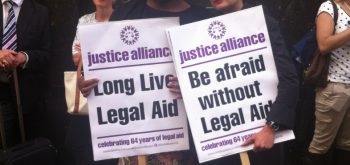This week the gay marriage bill passed its first parliamentary reading in the House of Commons. Despite fears of an overwhelming Conservative rebellion, the bill went through 400 votes to 175, a majority of 225, almost 50 years after homosexuality became legal in the UK, writes Mhairi Aylott.
- Mhairi Aylott is a researcher at the Young Foundation and works as part of the Applied Innovation team, supporting a range of government bodies, charities and organisations to innovate for positive social change. Mhairi led research on the Justice strand of work at the Young Foundation, with expertise in Social Impact Bond and Payment by Result modelling.
As expected, the vote split the ruling Conservative Party – 127 voted in favour, 136 opposed, and 35 dissented. And as expected, Labour and Liberal Democrat voting patterns highlighted that they were more uniformly in favour of the bill.
‘Strong views exist on both sides but I believe MPs voting for gay people being able to marry too, is a step forward for our country.’
David Cameron, Twitter
Nick Clegg echoed Cameron’s view, commenting: ‘I genuinely believe that we will look back on today as a landmark for equality in Britain.’
Celebrating the decision
Cheers of joy were heard outside Parliament when the bill went through. Peter Tatchell, the gay rights campaigner, talked of the huge symbolic importance of the bill, commenting:
‘This bill is a validation of love between people of the same sex, denying us the right to get married is an insult to those many lesbian and gay couples in long term relationships who simply want the same rights as everyone else.’
Chelvan, another gay rights campaigner and barrister, called the vote a landmark moment in the journey for equal rights. ‘Separate but equal is not good enough,’ he said. ‘Gay people are identified as being different and not worthy of this institution — and it is that distancing that fuels discrimination of lesbian and gay people even in 2013.’
Stonewall Chief Executive Ben Summerskill commented, ‘as the last piece of the legislative jigsaw providing equality for gay people in Britain, this is a truly historic step forward. We’re absolutely delighted MPs have demonstrated so overwhelmingly that they’re in touch with the 21st century. Most people in Britain support equal marriage and will be delighted we’re now a step closer to it.’
Despite a divide between the Tories, there was rallying support from some of the most senior Conservatives. William Hague, George Osborne and Theresa May wrote an open letter to the Daily Telegraph backing gay marriage:
‘Marriage has evolved over time. We believe that opening it up to same-sex couples will strengthen, not weaken, the institution. As David Cameron has said, we should support gay marriage not in spite of being Conservatives, but because we are Conservatives.’
Many backbench MPs have publicly aired similar opinions, for example, Damian Collins, the MP for Folkestone and Hythe remarked, ‘the bill is an attempt to strengthen equality in our society, without compromising religious freedom.’
Dissenting views and opposition
Voting lists show that 136 Conservatives opposed the bill. This includes two cabinet ministers – Environment Secretary Owen Paterson and Welsh Secretary David Jones – eight junior ministers, and eight whips.
Edward Leigh, Conservative MP for Gainsborough in Lincolnshire argued, ‘we should be in the business of protecting cherished institutions and our cultural heritage otherwise what, I ask, is a Conservative Party for? We are alienating people who have voted for us for all their lives, leaving them with no one to vote for.’ David Burrowes, the Conservative MP for Enfield Southgate commented, ‘the State is trying to divide and rule the meaning of marriage. It is up to Conservatives to vote for freedom from the overreaching hand of the State.’ Some Liberal Democrats were also divided on the issue.
For example, Sarah Teather voted against the bill – ‘if I felt that the current legal framework left gay couples unprotected, I would be much more inclined to support the proposed legislation. Virtually no new protections are offered to same-sex couples on the basis of this legislation on marriage, and any that are could easily be dealt with by amending civil partnership legislation.’
As expected, this decision has also been met with anger from certain groups. Mohammed Shafiq, from the Ramadhan Foundation was against the decision: ‘we just believe marriage is a unique institution between a man and a woman.’ Catholic bishops have also warned that the legislation will have profoundly negative effects on society. Archbishop Peter D. Smith of Southwark argues ‘Marriage is rooted in the complementarity of man and woman. For these reasons the Church opposes the Government’s Bill to re-define marriage. Despite claims by supporters of the Bill that the central issue is one of equality, the Bill actually seeks to re-define marriage and will have consequences for society at large.’ Looking forward, he further argues that ‘the government has not thought through a number of profound problems in the Bill.’
In the media, Stephen Glover of the Daily Mail also voiced strong and controversial opinions denouncing the bill: ‘I don’t think many people want gay marriage. I even doubt that the majority of gays do. How brilliant the secular liberals are at stigmatising the mainstream beliefs of moderate people, and trying to frighten them into believing that they are extremists who must change their ways. But it is the liberals, in their intolerance and caricaturing of their opponents, who are the real extremists.’
Moving towards equality?
This week’s activity marks a landmark shift in thinking from our Parliament. Currently, same-sex couples only have the option of a civil partnership, offering the same legal rights and protections on issues such as inheritance, pensions, and child maintenance. Although the proposals in their current form do not offer same-sex couples true marital equality before the law, it is the beginning of a stepped change to make sure modern marriage reflects the value we place on long-term, loving relationships for heterosexual couples. There is still a long way to go – strong opposition is expected in the House of Lords, and there is still the important caveat that religious organisations can decide if they want to ‘opt in’ to hold gay weddings. However, this week’s news is a landmark decision, in the practice, thinking and culture of our society, and importantly our MPs.






